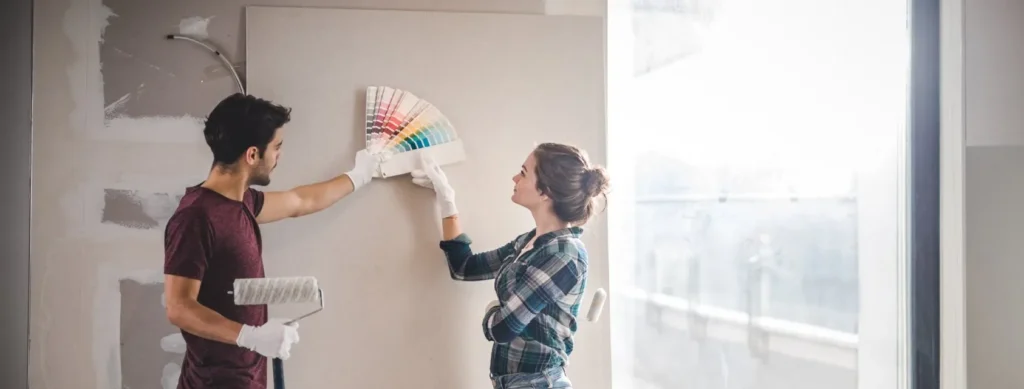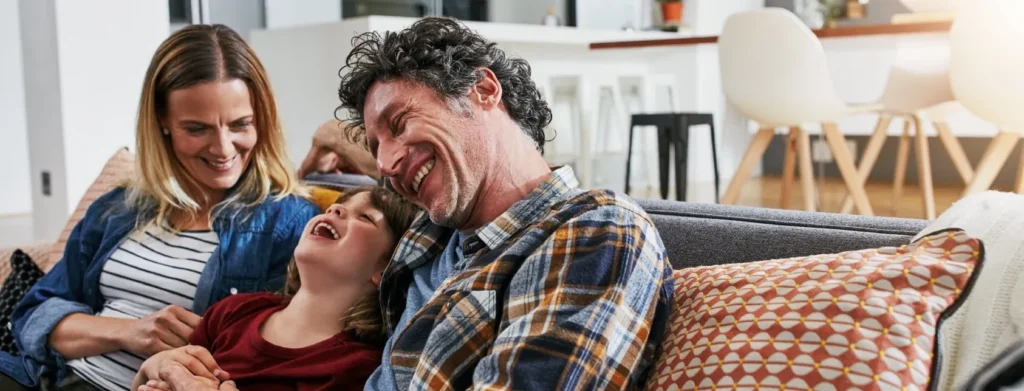
Remortgaging a Shared Ownership Home
Learn more about shared ownership schemes, getting a shared ownership remortgage, comparing the right deals and more.
Speak to a remortgage adviser
Fill out this enquiry form and we’ll contact you to book a free call with one of our mortgage experts.
"*" indicates required fields
A remortgage for a shared ownership home is slightly different from a remortgage where you own 100% of the house. Understanding why a shared ownership remortgage is viewed a little differently by companies lending you money will help you to make the best decision for you.
Contents
What is Shared Ownership of a House?
Shared ownership is an agreement where you live in a house and pay both a mortgage for the part of the property that you own and rent for the part that you don’t own.
Some housing associations and your local councils offer shared ownership to help people who can’t save a large enough deposit for their first home. Shares in a house are usually between 25% and 75% of the property’s value. In most cases, a person will own 75% of the house with a mortgage and then pay their local housing association or council rent for the remaining 25%. There are sometimes options to buy out the other part of the shared ownership, allowing you to eventually own 100% of the property.
What is a Shared Ownership Remortgage?
A shared ownership remortgage is a remortgage on a shared ownership property. It’s where you take out a new mortgage with a new lender on the part of the shared ownership property you own. The remortgage will take the place of your existing mortgage.
Why Would You Remortgage Shared Ownership Mortgages?

By remortgaging your shared ownership house and switching to a new deal, you can:
- Change the time you take to repay the mortgage, depending on how much you can afford
- Pay off the other person who owns part of your home
- Choose a new lender and select a mortgage that suits your current circumstances
- Select a new product with new charges to borrow money (interest rate), which might be more or less than you pay now
- Change the type of borrowing to a fixed rate (same amount every month for a set number of years), variable or tracker rate remortgage (monthly payment changes based on the Bank of England Base Rate)
- Borrow more money (further advance) to improve your house or invest in another one
Can You Remortgage a Shared Ownership Property?
Whether you can get a shared ownership remortgage will depend on your financial circumstances, payment history (credit), and how much you want to borrow. A shared ownership remortgage is a little different as you don’t own 100% of your home.
The company lending you money needs to take both your financial responsibility into consideration as well the agreement you have with the Council or Housing Association. For this reason, not all lenders provide a shared ownership remortgage, but many do.
It’s strongly recommended that you speak to an experienced shared ownership remortgage adviser who can discuss your options with you.
An adviser will help you to look at the full costs to remortgage your shared ownership home and look at any charges you might have to pay to come out of your current agreement.
How Much Can You Remortgage Shared Ownership Property for?
The amount you can remortgage a shared ownership property for depends on factors like your share’s value, equity, lender criteria and affordability. Generally, you can remortgage up to the value of your owned share, not the full property. Some lenders allow borrowing extra for staircasing (buying more shares), but approval depends on your income, credit score and the housing association’s consent.
Can I Own 100% Of My Shared Ownership House?
You can often buy the remaining percentage of the shared ownership on your house, which is called ‘staircasing’ – find out more in our Help to Buy Mortgage guide.
Staircasing allows you to gradually climb the stairs from part ownership to 100% by purchasing a greater share of the property. So, you borrow more money on your remortgage in order to buy back a percentage from the other owner (buying shares back).
However, there are often limits to the number of times you can do this, so it’s essential to check the terms and conditions of your agreement with the housing association or shared owner. Your rent on the shared ownership portion should decrease as you buy an increased share of your home, but this may mean your remortgage payments increase if you increase your borrowing to purchase this share.
How to Remortgage Shared Ownership Property
As not every lender offers shared ownership remortgages, it’s best to speak to a qualified adviser. Your remortgage adviser can discuss which companies will lend you money and compare deals to get the best shared ownership remortgage for your circumstances.
- Check your current mortgage – review your existing terms, balance and any ERCs
- Determine your goals – decide whether you want to borrow more, get a better rate, or staircase (increase your ownership share)
- Assess your equity – understand how much of the property you own and whether you want to buy more shares
- Speak to a mortgage adviser – not all lenders offer shared ownership remortgages, so expert advice can help find the best deals
- Compare lender options – your adviser can identify lenders willing to remortgage shared ownership properties
- Check affordability – lenders will assess your income, outgoings and credit history
- Apply for the remortgage – submit your application and required documents for approval
- Legal process and completion – a solicitor will handle the legal work before the new mortgage is finalised
Compare Shared Ownership Remortgage Deals
As with any mortgage, it’s important to look at the bigger picture when it comes to cheap shared ownership remortgage deals. Almost all lending has costs and fees attached, and it’s essential to look at both the rate and the fees together when comparing products.
Shared ownership remortgage rates are often slightly higher than standard residential mortgage rates due to the unique structure of part-owning, part-renting the property. However, they can still be competitive, especially if your financial situation has improved since your initial mortgage.
When comparing deals, it’s essential to consider not just the interest rate but also associated fees, such as arrangement costs, valuation fees and potential ERCs. While remortgaging may offer better rates than your initial shared ownership mortgage, eligibility will depend on your equity, credit history and affordability.
A mortgage adviser can help assess deals based on overall value rather than just headline rates, factoring in features like the ability to overpay, take payment holidays, or even receive cashback incentives. Looking at the complete financial picture ensures you secure the best deal for your circumstances.
How Do I Leave a Shared Ownership Remortgage?
If you no longer wish to own the property and want to leave a shared ownership mortgage, you’ll need to sell the property and repay an agreed share to the other owner, in line with their terms and conditions. You’ll need the agreement of the shared ownership partner to do this.
If you’d like to keep the property but leave the shared ownership agreement, you’ll need to raise funds via a remortgage to buy out the shared ownership partner. The property will need to be valued, and the shares calculated. Also, there may be costs for exiting your shared ownership agreement and current mortgage early.
What Happens When I Sell a Shared Ownership House?
If you’d like to sell your shared ownership house, you can choose to buy out the shared owner on receipt of funds from the sale or negotiate with the Council or Housing Association to sell the house on a shared ownership basis. You’ll need to contact the shared owner for permission to sell and proceed with any sale of the property.
If you sell your house on a shared-ownership basis, you will need to ensure that any property details clearly state these terms. You’ll also need a solicitor to manage the financial transaction and transfer of shared ownership to a new property owner.
To get in touch with one of our experts, give us a call on 0808 239 9021 or enquire online today.
Get in touch with our experts
Book an appointment with an adviser today and we’ll help you work out which mortgage deal is best for you and your requirements.

